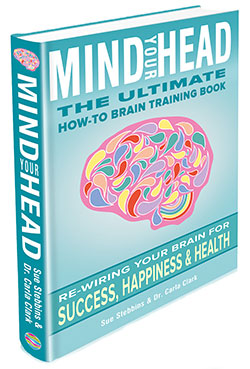Joint Attention: Communication and Other Minds -- Issues in Philosophy and Psychology
NAOMI EILAN, CHRISTOP HOERLH, TERESA MCCORMACK, JOHANNES ROESSLER (EDS)
(Reviewed by Christopher Mole, Washington University in St. Louis)
Page 2
Fabia Franco's work, particularly her experiments contrasting imperative and declarative pointing, is also rich with the insights that come from experimental paradigms allowing for the observation of an infant's more naturalistic behaviours. Franco uses a large body of evidence concerning infants' spontaneous pointing behaviours to make the case that infants point with understanding and that their pointing serves to elicit verbal information from social interactions. She is well aware of the difficulties that face any attempt to demonstrate a claim about the presence of understanding, but this does not deter her from being clear throughout that it is understanding she is interested in, and not a watered-down, more readily operationalizable notion. The work that Franco presents here is evidently part of a larger work in progress concerning the use of pointing in adults and children. She has a clear sense of the complexity of the role of pointing in joint attention, and of the fact that focusing our research on the child but neglecting the mother will yield only a partial account of these essentially interpersonal phenomena.
Contrasting with the approach of Reddy and Franco is the less naturalistic approach taken in a paper by Amanda Woodward, which attempts to plot the extent of the infant's conceptual repertoire through a number of preferential looking experiments.
At the heart of the contribution by Johannes Roessler, the volume's fourth editor, is the need to strike a balance between, on the one hand, a portrayal of the infant as rationally acquiring an understanding of other minds, and, on the other hand, the need to avoid a picture of the infant as engaged in implausibly complex reasoning or as deploying excessively complex concepts. Roessler points out a number philosophical problems that are faced by some of the positions one might want to occupy in trying to strike this balance. All of these problems are serious ones, and Roesller presents them in a compelling way. He also wants to claim that the positions that face these problems are sufficiently close to being exhaustive for the problems to amount to a paradox, but here he is less convincing. This is a place at which some of the unappealingly dry philosophical details would have been helpful, and one wishes that Roessler's paper as a whole were more straightforwardly philosophical. After the book's empirically weighted first half, the philosophical beginning of Roessler's paper is welcome and engaging. He begins with questions suggested by remarks from Iris Murdoch's The Sovereignty of Good and from Kant's Critique of Pure Reason, and it is hard for the philosophical reader not to feel a little disappointed when, after two pages of philosophical scene setting, he announces that "Rather than trying to tackle these questions head-on, I will approach them by considering a less purely philosophical [. . .] question that has been the subject of [. . .] developmental psychology." This 'less purely philosophical approach' is not without virtues, but the issue that Roessler is engaging is, ultimately, a philosophical one -- it is the question of how new understanding can be reached. And the problems Roessler poses are close relations of the old and enduring philosophical puzzles that the tortoise set Achilles and that Plato sets us in the Meno. Roessler's positive suggestion about the importance to the infant's development of evaluative attributions, such as attributions of scariness, funniness, and disgustingness, is a promising lead, and it is to be hoped that he pursues it in future work.
The head-on philosophical approach that Roessler avoids is found in papers by John Campbell and Christopher Peacocke. Both are concerned with the relation between joint attention and 'common knowledge' in the technical sense introduced by David Lewis when explaining the rationality of conventional and coordinated behaviour. The virtues of the head-on approach are very much in evidence in Peacocke's contribution, the strength of which is as much owing to his precision in posing a philosophical question as to his technically deft and phenomenologically sensitive way of answering one. The first item on Peacocke's agenda is the giving of an accurate and literal description of the openness of joint attention. This openness is, intuitively, a matter of mutual awareness between joint attenders of what the other is aware of, and one of the things that each joint attender is aware of is the other's awareness. The iterated awareness of one another's awareness is essential to the openness of joint attention, but iterations beget infinity, and care is needed to avoid attributing infinitely complex contents of awareness to finitely minded joint attenders. Peacocke avoids the problem by offering an analysis that uses the notion of the availability of contents for occurrent awareness, together with self-referential awareness of this availability. This is a different way of dealing with the potential problems of infinite iterations from that used in Lewis's discussion of common knowledge (and in Stephen Schiffer's), and Peacocke is clear about why the more familiar tactic cannot be made to work for iterations of awareness and offers some interesting speculation about whether the notion he has introduced might be more fundamental and more widely applicable than common knowledge as Lewis and Schiffer understand it..
We Make it Easy to Succeed
Successwaves, Intl.
Brain Based Accelerated Success Audios
 |






